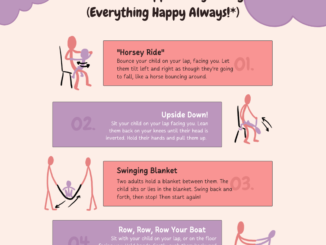I’ve recently seen some confusion about how empathy develops in children.
Someone might say, “You can’t expect children to start showing empathy or take someone else’s perspective until they’re 7+”, and someone else might argue, “But toddlers and even babies absolutely seem like they’re being empathetic—so we can expect it of them.”
The truth is that basically all human skills start developing the moment we’re born, in some manner of speaking. It depends quite a bit on how you define them.
To give a more small and concrete example, I could say “humans begin learning to walk as soon as they’re born,” if I’m thinking of the fact that humans begin learning how to kick their legs, learning how to perceive sensory input from their legs and feet, learning what muscles move what part of their feet and legs, learning how to move their body and stabilize their trunk… etc.
And then somebody else could say, “humans begin learning to walk when they are between 9-12 months old,” if they’re thinking of the fact that that’s when babies typically start trying to pull up to stand, cruise on furniture, put their feet down, bear weight, etc.
So in a way, both “sides” are right. Humans begin learning empathy “from birth” in a way, too. They stare at faces and start trying to puzzle out what expressions mean. They start trying to interpret how people’s tone of voice affects what they are saying. They co-regulate with caregivers on an instinctual level as their heart rate matches their caregiver’s when they are unsettled, and their breathing matches their caregivers, and they “calm down” together.
There have been studies showing glimmers of this empathy in babies and toddlers! Do they look concerned when an adult pretends to be sad or shows big sad cues in front of them? Well, does that concern mean that they are “having empathy”? Maybe! It means that they are seeing a sad person and feeling sad/concern in a mirror of the way that the person they saw does. In a way we would say that is empathy. Do toddlers try to bring a helping object over to an adult who is pretending to be sad or hurt or need help? Sometimes! Does that mean they are “having empathy”? Maybe! It means that they are seeing an adult who is hurt and trying to offer them comfort.
Parents can see this at home with their kids too. If the parent gets stressed out and cries, the toddler might offer them the toddler’s own favorite blanket or sippy cup, or give them a little hug or say “Awwww” or say “mama sad?” or all kinds of things that we could say are the glimmers of developing empathy…depending on how we are defining it.
At the same time, kids this age are also still, developmentally appropriately, egocentric. Their focus is mainly on themself. They have a hard time putting themself fully into someone else’s perspective.
An anecdotal example of this is that my daughter, who loves fashion and pink and jewelry and all things pretty, near-constantly gives me these types of things. I take them as love because that’s what they are! I also know that she literally cannot put herself into my perspective yet. We’ve had quite a lot of conversations about it because she likes to ask “Do you love that?” and I won’t outright lie to her, so pretty much every single day for like two years straight then I’ve had some iteration of a conversation about whether or not I do or don’t love jewelry and pink and dresses, and it doesn’t really matter what I say; SHE loves jewelry and pink and dresses, and those things are experienced as love in HER head, so she assumes they will also be experienced as love in mine, because that’s what that inability to perspective-take means.
(I promise you that I’m kind to my daughter. I say everything from “wow I love it when you give me things” to “wow this is so very sparkly, that’s cool” to “it seems like YOU love it, I would be happy to watch YOU wear something you love!” to sometimes also self-advocating “I don’t want to wear that kind of bracelet because rubber bothers my skin but I can put it in my pocket if you want”.)
When people talk about empathy developing later in childhood, they are usually just using a more precise definition of the kinds of expectations that it is reasonable to have with older kids.
Asking questions like, “How would you feel if x happened to you?” or things like that where it involves perspective-shifting, imagining yourself in someone else’s point of mind, are pointless to kids who are 3, 4, 5.
The kids might learn to regurgitate an adult answer. “How would you feel if he hit you?” “baaaad” (translation: get off my back, adult.) As they get older they might truly understand the question and be able to imagine it: How would I feel if he hit me? Dang, I wouldn’t like it if he hit me (but also I’m still completely justified in having hit him, because HE was in my SPACE, and if he hit me it would be completely unjustified because it’s happening in an imaginary hypothetical removed of all context!)
Only when they get more older and more and more complex reasoning can they hold all parts of it in their mind. Consider from other perspectives, reason about what to do…and even then, they still might do something impulsive (like hit) the same way that adults might do something impulsive (like yell at their kids) even though they have empathy and know they don’t want someone to yell at them.
It depends on what you’re asking of the child, it depends on how you’re defining “empathy”, it depends on what precisely researchers are studying and precisely what population they’ve studied it with, and that’s why people like me tend to be saying that it’s later, not earlier, because we’re not defining “when are there seeds of this first growing?” (answer: at birth, in a way), but rather, “when is it reasonable vs unreasonable to try to expect something of your kid based on this?”



